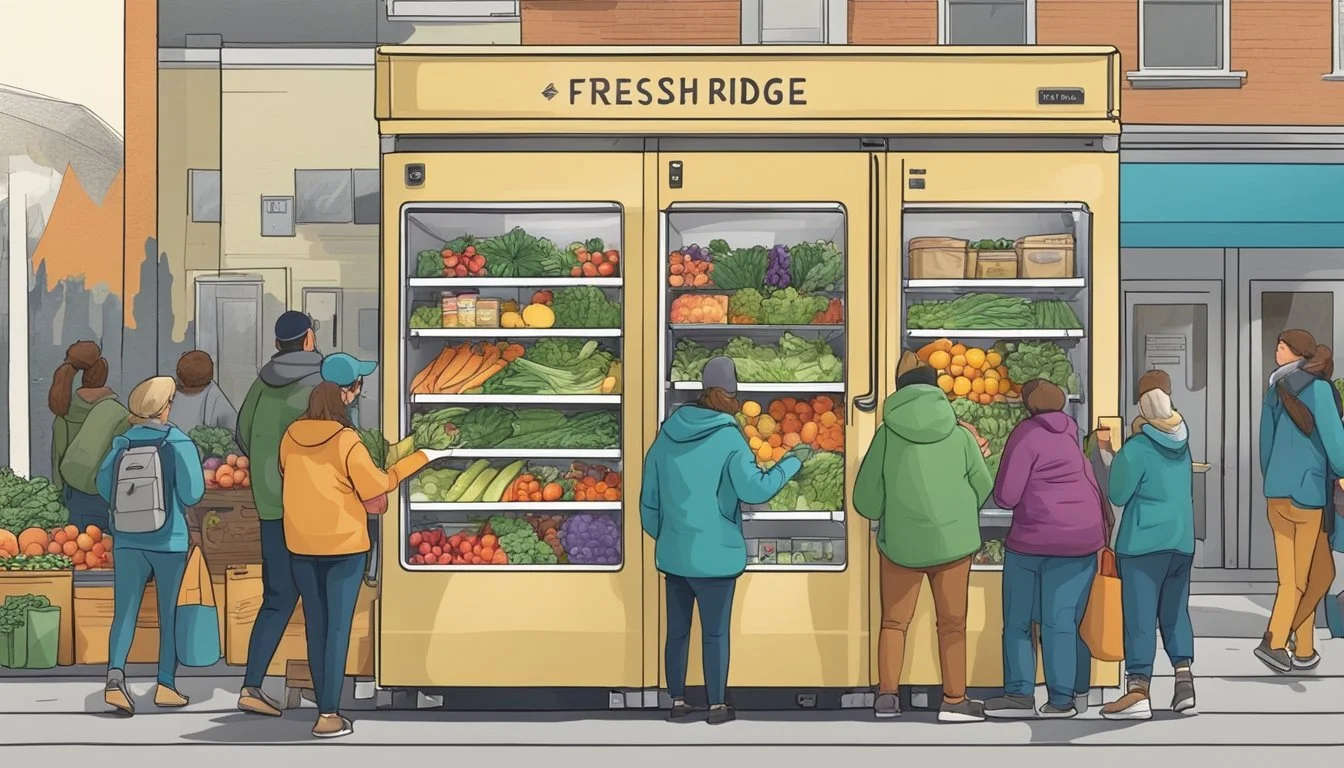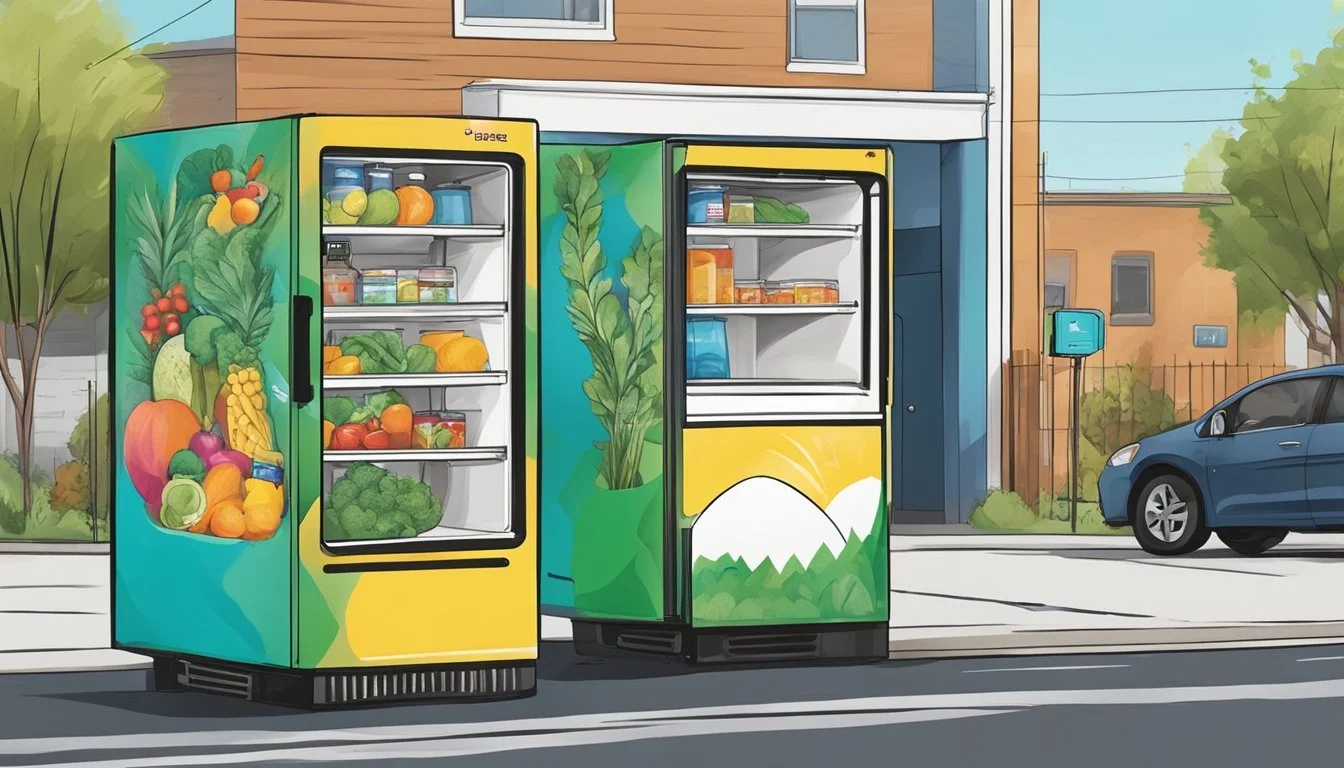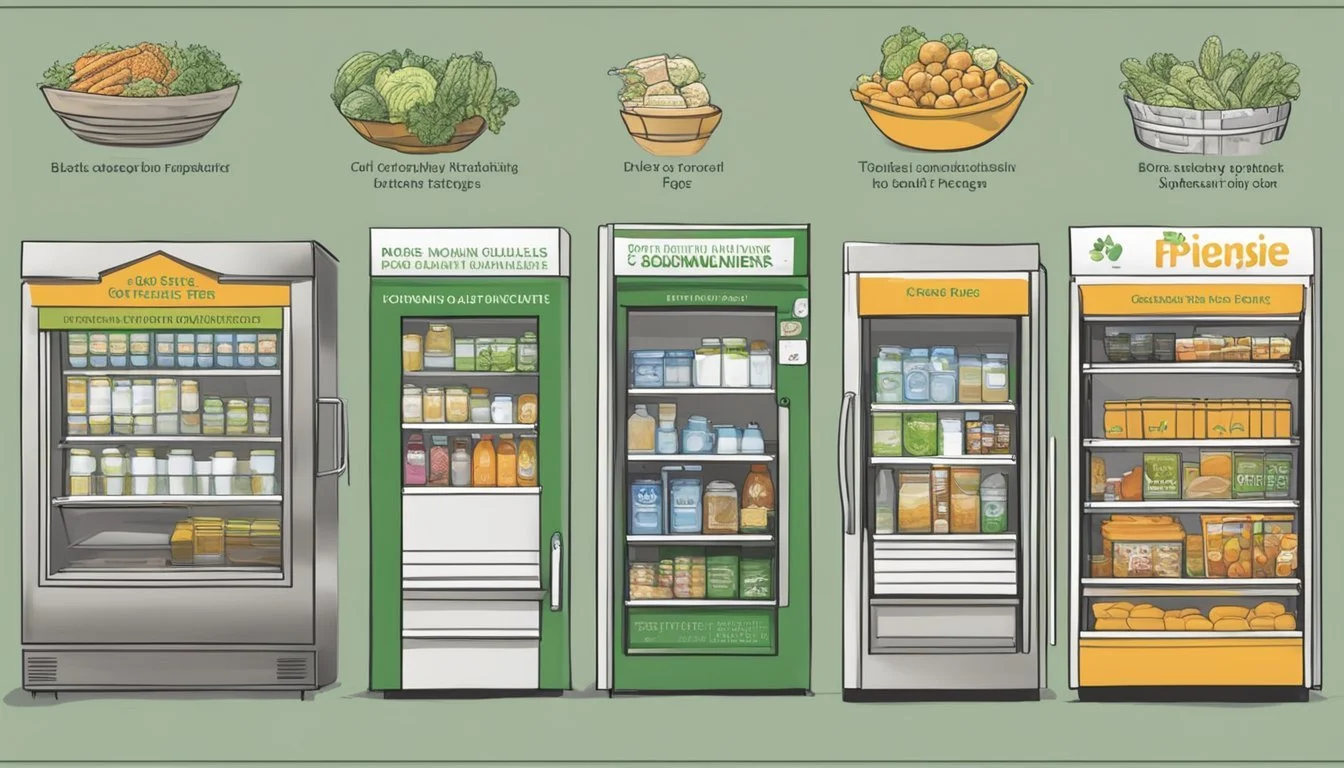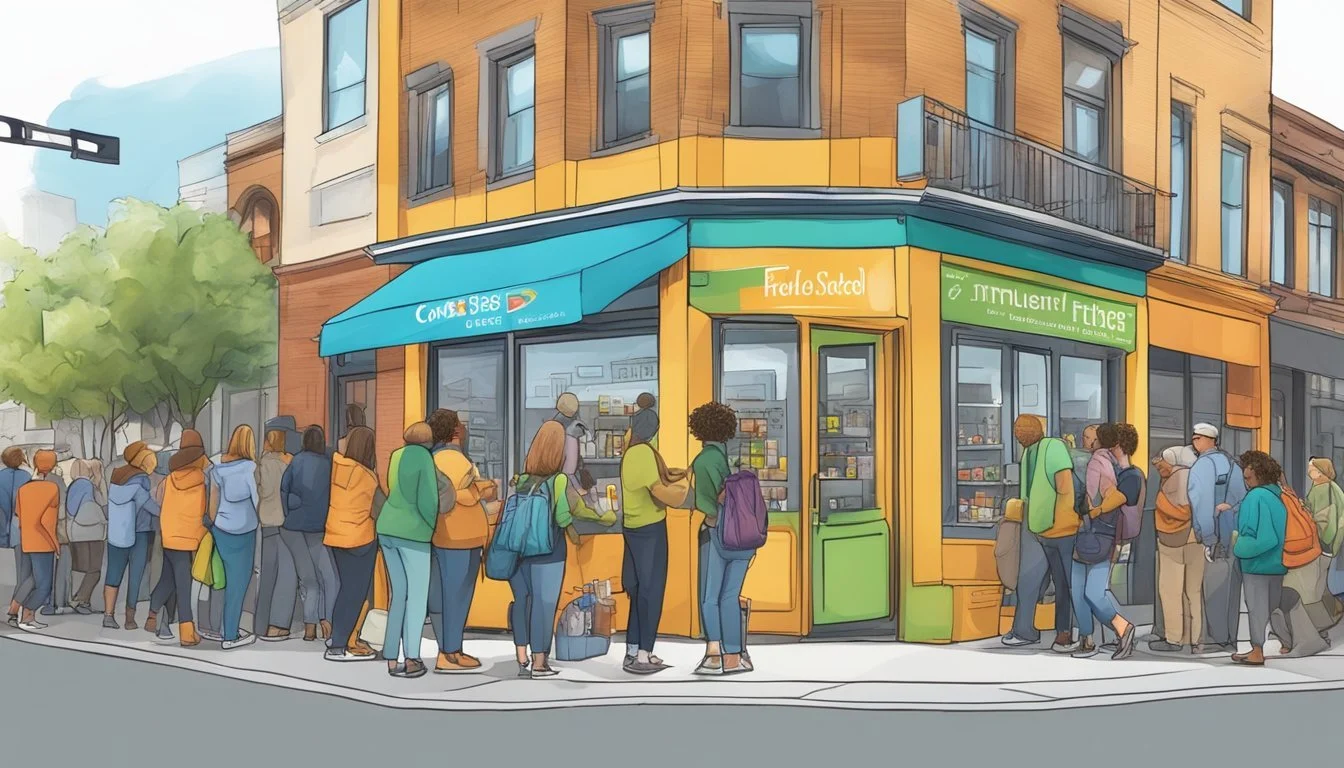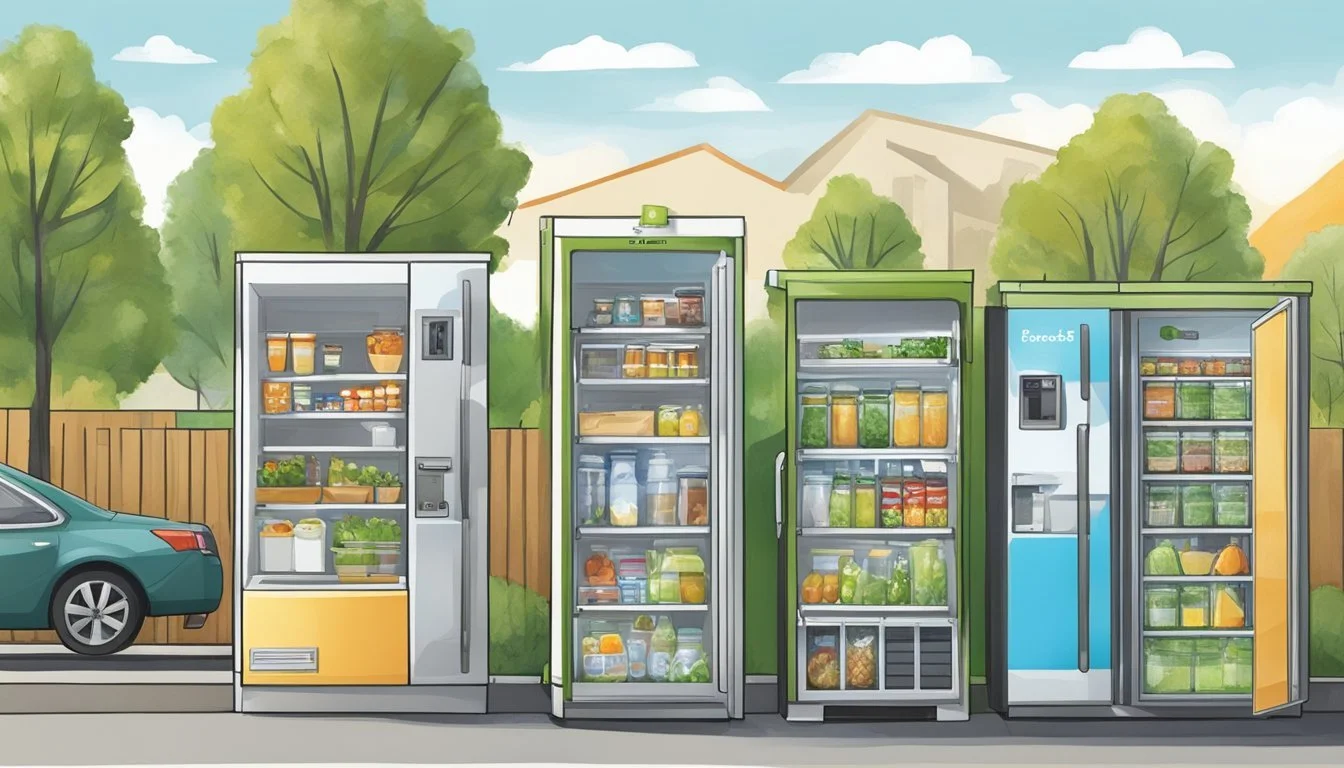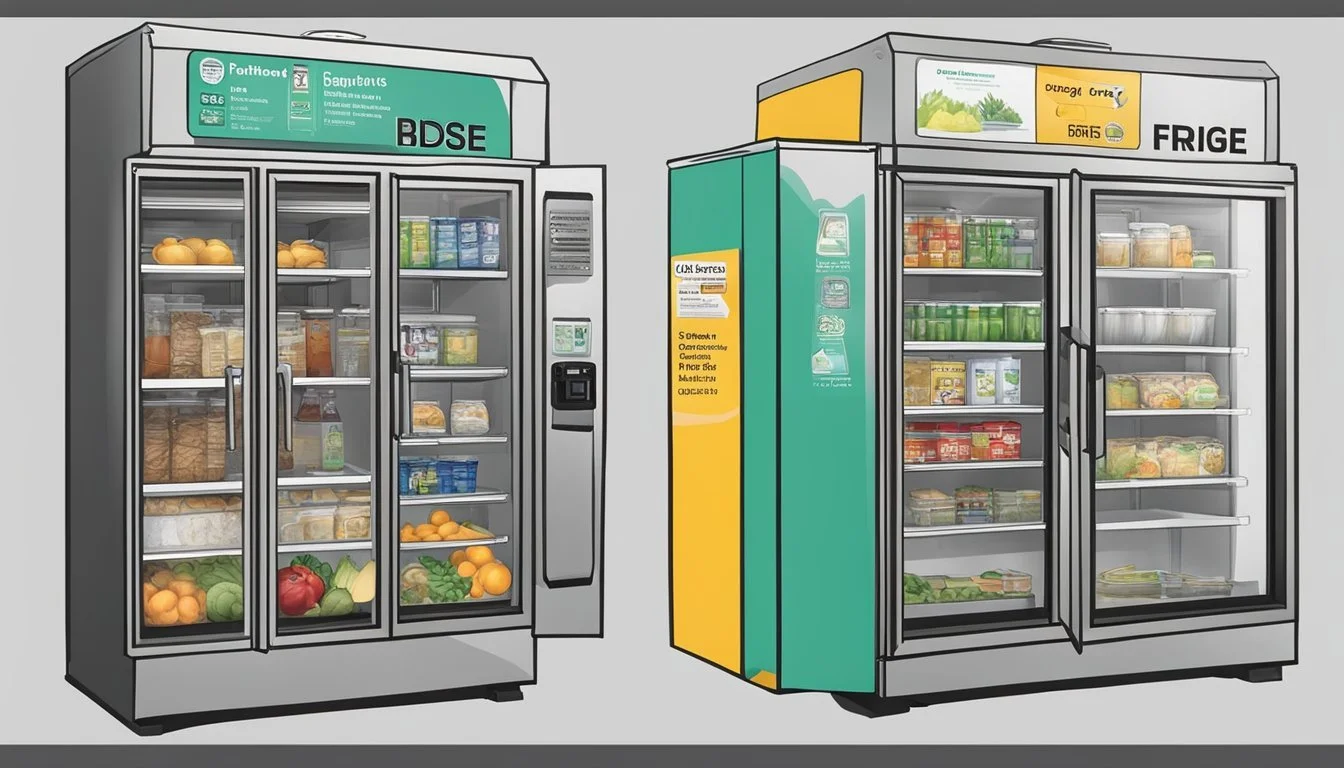Boise, ID Community Fridge
Tackling Food Insecurity with Collective Action
In Boise, Idaho, a city recognized for its spirit of community and innovation, the concept of a community fridge has taken root as a means to address food insecurity and encourage food sharing among residents. This initiative underscores the city's commitment to fostering sustainable practices and providing all citizens access to fresh, nutritious food. The community fridge operates as a public refrigerator where individuals and businesses can freely share surplus food while those in need can take what they require, no questions asked.
The community fridge model complements Boise's existing network of food assistance programs and adds a layer of immediacy and accessibility in the fight against hunger. By providing a space for perishable items that traditional food banks may struggle to store, these refrigerators maximize the use of available food resources within the city. The open-access nature of community fridges also serves to reduce food waste, a critical issue for both environmental sustainability and food system efficiency.
Rooted in the ideals of mutual aid and neighborly support, Boise's community fridge initiative exemplifies the city's progressive approach to both community building and social welfare. It not only enhances food security but also strengthens the bonds among Boise residents, creating a shared platform for fostering unity and compassion within the local community.
Overview of Community Fridges
Community fridges are an innovative approach to addressing food insecurity and reducing food waste. They act as communal places where individuals can access food freely and contribute what they can.
Concept and Purpose
A community fridge, often just called a "fridge," is a publicly accessible refrigerator where the community can donate and receive perishable food items at no cost. The primary aim is to combat food insecurity by providing access to food for those in need and to prevent good food from going to waste. These refrigerators are usually placed in accessible locations to ensure they can serve as many people as possible. They operate on a trust basis, with the philosophy that taking what you need and giving what you can, promotes a sustainable cycle of sharing and caring.
Boise's Response to Food Insecurity
In Boise, Idaho, the community fridge serves as a collective response to tackle local food insecurity issues. Boise's community fridges are placed in strategic locations throughout the city to provide access to fresh food for everyone, especially those who might be experiencing difficulty in affording groceries for their homes. These fridges not only help in nourishing the community but also play a part in fostering community spirit and advocacy around hunger and food waste. They exemplify Boise's communal efforts towards a supportive and inclusive home for all residents.
Location and Accessibility
Community fridges in Boise, ID are strategically located to serve various neighborhoods efficiently. They offer residents easy access to fresh food and serve as a hub for food sharing and community support.
Neighborhood Placement
Community fridges can usually be found in areas that are central and accessible to a wide range of residents. In Boise, these fridges are often placed in neighborhoods close to community centers or local businesses that see frequent foot traffic. They are positioned to be easily reachable for residents of Boise as well as nearby cities such as Meridian, Eagle, Garden City, Caldwell, Nampa, and Kuna.
Operating Hours
Boise's community fridges operate on a simple principle: they should be available to the community at any time. Consequently, most fridges have 24/7 accessibility, ensuring that individuals in need can access food outside of normal business hours or during emergency situations. This constant availability underscores the community spirit and the supportive culture of sharing in Boise.
Donation Guidelines
The Boise, ID Community Fridge relies on community support to operate, thus specific donation guidelines are in place to ensure safety and usefulness. The guidelines clarify what items are suitable for donations and which items cannot be accepted.
What to Give
Accepted Appliances:
Freezer: Must be in working order and clean.
Washer: Should be operational with no leaks or major rust.
Dryer: Requires functioning heat settings and a lint trap.
Note on Appliances: They should come with all necessary components and be free of mold, pests, and sharp edges.
What Not to Give
Items that the Boise Community Fridge cannot accept include:
Appliances: Any appliance that is non-operational, including broken washers and dryers.
Safety Hazards: Any items that can pose a danger, such as those with frayed electrical cords or broken parts.
Maintenance and Hygiene
The integrity of the Boise, ID Community Fridge largely depends on its consistent maintenance and rigorous hygiene practices. Proper cleaning routines coupled with timely repair and upkeep are essential for ensuring that the community fridge remains a safe and reliable resource.
Regular Cleaning Procedures
Daily Maintenance:
Surfaces: All interior and exterior surfaces are wiped down with food-safe disinfectants.
Shelves: Shelves are cleared and sanitized individually to prevent contamination.
Weekly Deep Cleaning:
Freezer and Refrigerator Compartments: A thorough cleaning of the freezer and refrigerator compartments is conducted to remove any food residues and spills.
Gaskets and Seals: Gaskets and door seals are checked for food particles and mildew, which are meticulously cleaned to maintain an airtight seal.
Repair and Upkeep
Scheduled Inspections:
Thermostats: The fridge's thermostat is regularly monitored to ensure proper temperature control.
Seals and Motors: They inspect seals and motors for wear and tear, addressing issues before they escalate.
Refrigerator Repair:
Accredited technicians are enlisted for repairs, ensuring adherence to safety standards and manufacturer guidelines.
Common issues like coolant refilling or part replacements are promptly handled, minimizing downtime.
Through these measures, the Boise, ID Community Fridge aims to meet high standards of maintenance and hygiene, ensuring it serves the community effectively and safely.
Volunteering and Community Involvement
Boise, ID prides itself on a strong sense of community, with ample opportunities for residents to volunteer and support local initiatives. These efforts play a pivotal role in enhancing community welfare and fostering civic engagement.
How to Get Involved
Individuals interested in volunteering can connect with Boise Parks and Recreation to support park projects and recreational activities. Prospective volunteers may:
Submit an Application: To formally register interest and capabilities.
Join the Trail Ranger Program: For those passionate about maintaining hiking trails.
The Ridge to Rivers partnership aligns volunteers with various outdoor conservation projects, while organizations such as the Assistance League of Boise require dedicated individuals willing to commit time to improve the lives of locals in the Treasure Valley area.
Community Benefits
By volunteering in community projects, contributors can significantly impact several areas:
Needing and Availability: Community fridges address food insecurity by relying on the availability of donations and volunteer support.
Mutual Aid: Volunteering fosters relationships between community members, creating a network of mutual aid and support.
Volunteering strengthens Boise's community fabric, as each action taken by a volunteer helps to reinforce the city's commitment to nurturing well-supported and interconnected neighborhoods.
Partnerships and Support
In the endeavor to support food security in Boise, ID, the Community Fridge initiative thrives on the backbone of local collaboration and government facilitation.
Local Businesses and Organizations
The success of the Community Fridge in Boise hinges on the synergistic partnerships it fosters with local businesses and organizations. Appliance providers, such as GE, LG, Samsung, Maytag, and Whirlpool, play a pivotal role by supplying reliable refrigeration units. These alliances ensure that the Community Fridge is equipped with high-quality appliances necessary for food preservation. In addition to appliance donations, local Appliance Repair Professionals extend their support through maintenance services, ensuring the fridges run efficiently and uninterrupted.
Appliance Donations:
GE
LG
Samsung
Maintenance Partners:
Local Appliance Repair Professionals
Government Support
Government backing is crucial to the infrastructure of Boise’s Community Fridge project. The local government's role involves regulatory facilitation, as well as direct or indirect financial aid, which is essential for operation and expansion. By creating an environment that encourages community-led initiatives, the government helps in reinforcing the food assistance network to the benefit of citizens facing food insecurities.
Government Facilitation:
Regulatory Support
Financial Assistance
Sustainable Practices and Technology
In Boise, ID, the Community Fridge initiative harnesses sustainable practices and cutting-edge technology to minimize environmental impact. These refrigeration units are not only pivotal in food preservation but also in advancing the city's commitment to sustainability and energy efficiency.
Energy Efficiency
The Community Fridge initiative in Boise has integrated energy-efficient solutions to reduce consumption. They employ:
High-efficiency compressors: These systems use less energy to maintain the optimal temperature.
LED lighting: It illuminates the interior while emitting minimal heat and using less electricity than traditional bulbs.
Smart thermostats: These devices ensure the fridges operate at peak efficiency by constantly adjusting to maintain consistent temperatures with minimal energy use.
Energy-efficient practices extend the lifespan of food products and contribute significantly to the city’s overall energy reduction goals.
Advancements in Refrigeration Technology
Boise's Community Fridge represents a leap in refrigeration technology with features including:
Programmable defrost cycles: These cycles are timed precisely to reduce energy waste and maintain food safety.
Vacuum insulation panels: For superior thermal retention compared to traditional insulation materials.
Magnetic refrigeration: An innovative system, still emerging in practical applications, that could revolutionize energy use in cooling technologies by using magnetocaloric effect instead of gases.
These technological advancements underline Boise’s commitment to sustainability, showcasing how future-focused refrigeration technology can align with community support initiatives like the Community Fridge.
Legal and Safety Considerations
When operating a community fridge, it's essential to be well-informed about food safety and liability laws. These considerations ensure the protection of both the users and organizers of the Boise, ID Community Fridge.
Food Safety Regulations
In Boise, Idaho, community fridges must adhere to the Idaho Food Code, which includes guidelines for the proper handling, storage, and distribution of food items. Food safety is crucial to prevent foodborne illnesses, and the following protocols should be followed:
Temperature Control: Perishable items should be kept at safe temperatures, with refrigerators running at 41°F or below and freezers at 0°F or below.
Labeling: All food items should be clearly labeled with dates to ensure that the first-in, first-out (FIFO) method is employed.
Prevention of Cross-Contamination: Raw and cooked foods must be stored separately to avoid cross-contamination.
Liability Issues
The legal structure of the community fridge can impact the liability of organizers. Without formal incorporation, individual organizers could be held personally liable under certain circumstances. Key points to consider include:
Incorporation: Establishing a legal entity can provide a layer of protection for the organizers.
Insurance: Obtaining liability insurance can help safeguard against claims related to the operation of the fridge.
Food Donor Protection: The Federal Bill Emerson Good Samaritan Food Donation Act provides a level of immunity to good faith donors against civil and criminal liability, should the product later cause harm to its recipient.
By staying vigilant with these safety and legal guidelines, community fridges like the one in Boise can operate effectively while minimizing risks.
Impact and Future Directions
The Boise, ID Community Fridge initiative marks a significant advancement in combating food insecurity and fostering communal support. As the program looks ahead, its dual focus on growing impact and strategic development positions it as a model for similar efforts.
Community Outcomes
The Community Fridge in Boise has rapidly become a crucial resource for residents, addressing hunger while also minimizing food waste. Residents have benefitted from the fridge's dual role: it serves as a point of food access for those in need and a drop-off point for surplus food that might otherwise go to waste. The program's ability to connect and support individuals from various socioeconomic backgrounds illustrates its inclusive and unifying ethos.
Expansion Plans
Looking to the future, expansion plans are centered around extending the fridge's reach and bolstering the sustainability of the initiative. The goal is to enhance the capacity to serve more people while maintaining the quality and safety of the offerings. Potential developments include:
Establishing additional fridge locations
Strengthening community partnerships for broader support
Implementing educational programs on nutrition and sustainability
The trajectory of the Boise Community Fridge indicates a commitment to growth, with a clear strategy to address both present needs and anticipate future challenges.
Resources and Further Reading
Individuals interested in learning more about the Community Fridge initiative in Boise, ID, have access to a variety of resources. For general information on how to start and operate a community fridge, they can refer to the website ChangeX which offers a comprehensive "How To Guide" for setting up a local community fridge. This guide equips them with the necessary tools and steps to prevent food waste and support their neighborhood.
For those seeking local assistance or who wish to get involved with community fridges in Boise or the larger Treasure Valley area, contacting the Council on Domestic Violence and Victims Assistance might be beneficial. They offer services to victims of crime and can provide useful information and resources:
Phone: 208-332-1540
Online: Visit icdv.idaho.gov
In New York City, where the community fridge initiative has seen significant growth, individuals can refer to NYC Fridge for details. Those not in NYC can use their regional google search by inputting the phrase "community fridge" along with their town's name. This could reveal nearby locations and how to contact them.
For further education and support materials on community resources including fridges, one can turn to published booklets such as the "Community Resource Booklet Ada County and Surrounding Areas”, which outlines various resources within the community.
Lastly, The Bridge Youth and Family Resource Center in Ada County presents an opportunity for community members to access various supportive services. They adopt a holistic approach to assisting youths and families:
Phone: 208.577.4820
Email: bridge@adacounty.id.gov

